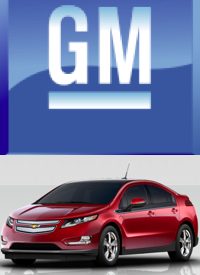
Even after the Cash for Clunkers program failed, the federal government refuses to give up. It is now launching Cash for Clunkers 2, this time for “green vehicles.” Perhaps not surprisingly, the proposal has delighted General Motors.
Cash for Clunkers was a program that involved the $3 billion free-money giveaway to consumers who were getting rid of their old cars. As noted by the Wall Street Journal, it was a government failure:
“The program has proven to be an administrative fiasco, as the central planners at Transportation vastly underestimated how many people would apply, assigned too few people to process applications, and had to scramble to borrow workers from the likes of the Federal Aviation Administration to process claims. Auto dealers have nonetheless told of having to front the money to car buyers as they wait and wait for Uncle Sam to get around to paying them.”
WSJ joked that the federal government “can’t even give away money very well.” In Milwaukee, for example, Brad Schlossmann reported having received “no payment whatsoever” on 120 clunker deals, while Russ Darrow, who engaged in nearly 400 clunker deals, received money for just a few.
The program began with a $1 billion budget, which ran out in just one week, prompting Congress to allocate an additional $2 billion which lasted just another month.
MassSnafu.com reported of the program, “[It] turned out to be a complete waste of taxpayer money as it failed to create demand and simply moved it forward, creating a void in auto sales down the road when people would have normally purchased their vehicle as planned. It also destroyed thousands of perfectly good cars, reducing the used car inventory available to the public for purchase.”
Yet the federal government’s short-term memory of its failures has prompted the idea to be resurrected.
The Blaze reports:
The administration is considering changing the already existent $7,500 tax credit for green cars like the all-electric, and wildly unpopular, Chevy Volt. Instead, and according to a document obtained by Edmunds.com, the credit would become ‘a rebate that will be available to all consumers immediately at the point of sale.
The program is being created by legislation proposed by Michigan Democratic Senator Debbie Stabenow, called “Charging America Forward Act.”
The Washington Times writes that the legislation will virtually benefit only the government-owned General Motors.
Even worse, the administration has no qualms about comparing the new program to the previous failure.
Vice President Joe Biden said at an Indiana battery assembly plant that the program “would be like the cash-for-clunkers program.”
Similarly, David Sandalow, assistant secretary for policy and international affairs, told Bloomberg News, “Consumers who have used hybrid-and-electric-vehicle credits have received the benefits when they filed their tax returns. The administration wants to make the cars more affordable at the point of sale, in the same way the 2009 ‘Cash for Clunkers’ program worked.”
Senator Stabenow is a leading advocate of the program since the state of Michigan would stand to benefit from it as it is where General Motors is located. GM issued a statement on the program:
We are pleased to see Senator Stabenow’s legislation that integrates all of the components necessary for successful acceleration of electric vehicles in the marketplace. We look forward to working with Congress on legislation that leads to widespread adoption of electric vehicles.
The Times reports:
It is pretty convenient that Ms. Stabenow, who represents a state where GM is headquartered is pushing a bill that is also supported by Edison Electric Institute, whose president was loaned a Chevy Volt, Eaton Corp: the sole American producer of car recharge systems, and Battery Electric Vehicle Coalition, a lobbying group for the electric car industry.
As noted by The Blaze, “If you need ‘legislation’ in order to ensure ‘widespread adoption of electric vehicles’ you probably need a.) a different product that people actually want, and b.) a new business plan. Unless you’re General Motors.”




